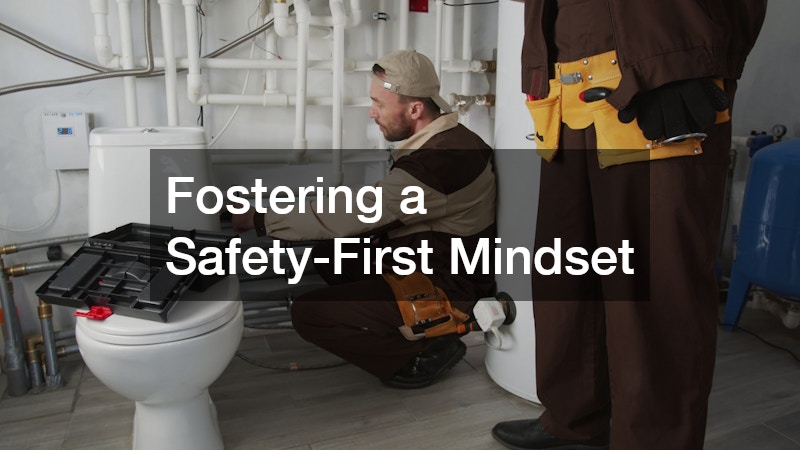For an apprentice plumber, understanding the basic components of plumbing systems is essential. This includes knowledge about pipes, fittings, valves, and fixtures, which collectively form the backbone of any plumbing system. Knowing how these components work and interact is crucial, as they affect everything from water supply to waste disposal. A robust foundation in these basics will empower apprentices to tackle more complex challenges as they advance in their careers. It’s not just about knowing what these components are, but also about comprehending their functions and interactions.
Plumbing systems are intricate networks that require careful planning and maintenance. An effective plumber must be familiar with various materials and their applications, such as PVC, copper, and PEX pipes. Each material has unique properties that make them suitable for specific situations, requiring the plumber to make informed decisions regarding their use. Understanding these materials helps prevent common issues like corrosion and leaks, which can lead to costly repairs. This basic knowledge also aids apprentices in diagnosing problems quickly and accurately, fostering a proactive approach to plumbing maintenance.
Learning to navigate the codes and regulations governing plumbing work is equally important. Codes ensure that plumbing systems are safe, efficient, and environmentally friendly. They dictate how installations should be performed, the types of materials used, and even the craftsmanship standards expected from plumbers. For instance, plumbers in Jackson, WY and similar municipalities must adhere to local building codes, which may vary from other regions. In-depth knowledge of these regulations protects the plumber and the public, ensuring that all plumbing work upholds the highest safety standards.
Developing Problem-Solving Skills
One of the most crucial skills apprentice plumbers need to develop is problem-solving. Plumbing issues are often complex and multifaceted, requiring a systematic approach to identify and resolve the root cause of the problem. To become an adept problem-solver, apprentices should start by honing their analytical skills. This involves learning how to assess a situation critically, gather relevant information, and break down the problem into manageable parts. Such skills help apprentices navigate the often-unpredictable challenges of plumbing work.
Hands-on experience is vital for developing problem-solving expertise. Every plumbing job is unique, presenting distinct challenges that require tailored solutions. Apprentices should embrace these opportunities to learn, as each problem-solving exercise enhances their ability to think critically and creatively. Over time, they will become more adept at predicting potential issues before they arise and devising innovative solutions to complex problems. This proactive approach not only improves efficiency but also minimizes downtime, making it a valuable asset in any plumber’s toolkit.
Communication and teamwork are essential components of effective problem-solving. Plumbing often involves working closely with other professionals, such as electricians, builders, and architects. Establishing good communication lines ensures that all parties are on the same page, reducing the likelihood of errors and improving project outcomes. Furthermore, collaborating with experienced colleagues provides apprentices with valuable insights and techniques that can enhance their own skill set. Embracing teamwork and communication fosters a supportive work environment that encourages continuous learning and improvement.
Focusing on Customer Service
Excellent technical skills alone do not make a successful plumber; customer service plays an equally crucial role. For plumbers in Jackson, WY and surrounding regions, maintaining a positive relationship with clients is essential for building trust and ensuring repeat business. Effective communication is key to achieving this, as it involves listening attentively to customer concerns, explaining technical issues in simple language, and providing clear updates on project progress. Demonstrating empathy and understanding can go a long way in reassuring clients and enhancing their overall experience.
Reliability is another vital aspect of excellent customer service. Customers often depend on plumbers to solve urgent issues that affect their homes or businesses. Prompt and timely service is crucial in such cases, as delays can lead to more extensive damage and higher repair costs. By consistently meeting or exceeding customer expectations for reliability, apprentice plumbers can establish a reputation for professionalism and dependability. This reputation can be a significant advantage in a competitive industry, helping them secure jobs and build a loyal client base.
Fostering a Safety-First Mindset

Safety should always be a top priority for apprentice plumbers. Working with pressurized water systems, gas lines, and sharp tools presents various risks, making a safety-first mindset essential. Apprentices must become familiar with standard safety protocols, such as using protective gear, following lockout/tagout procedures, and recognizing potential hazards on a job site. By internalizing these practices early, they reduce the likelihood of injury and contribute to a safer working environment for themselves and their colleagues.
Understanding and respecting safety guidelines also builds professional credibility. Clients and employers value plumbers who take their responsibilities seriously and prioritize safe practices. For example, proper handling of hazardous materials and adherence to ventilation requirements when working with chemical products not only prevents accidents but also demonstrates a commitment to health and safety standards. Apprentices who consistently apply these principles set themselves apart as dependable professionals prepared for long-term success in the industry.
Finally, apprentices should focus on continuous improvement. Soliciting feedback from customers on their services is a valuable way to identify areas for growth. Positive feedback reinforces good practices, while constructive criticism provides actionable insights for improvement. By actively seeking to improve, apprentices can refine their skills and deliver exceptional service that meets and exceeds customer expectations. Building strong customer relationships is not just about repairing pipes but about creating a positive, lasting impression through exceptional service.



